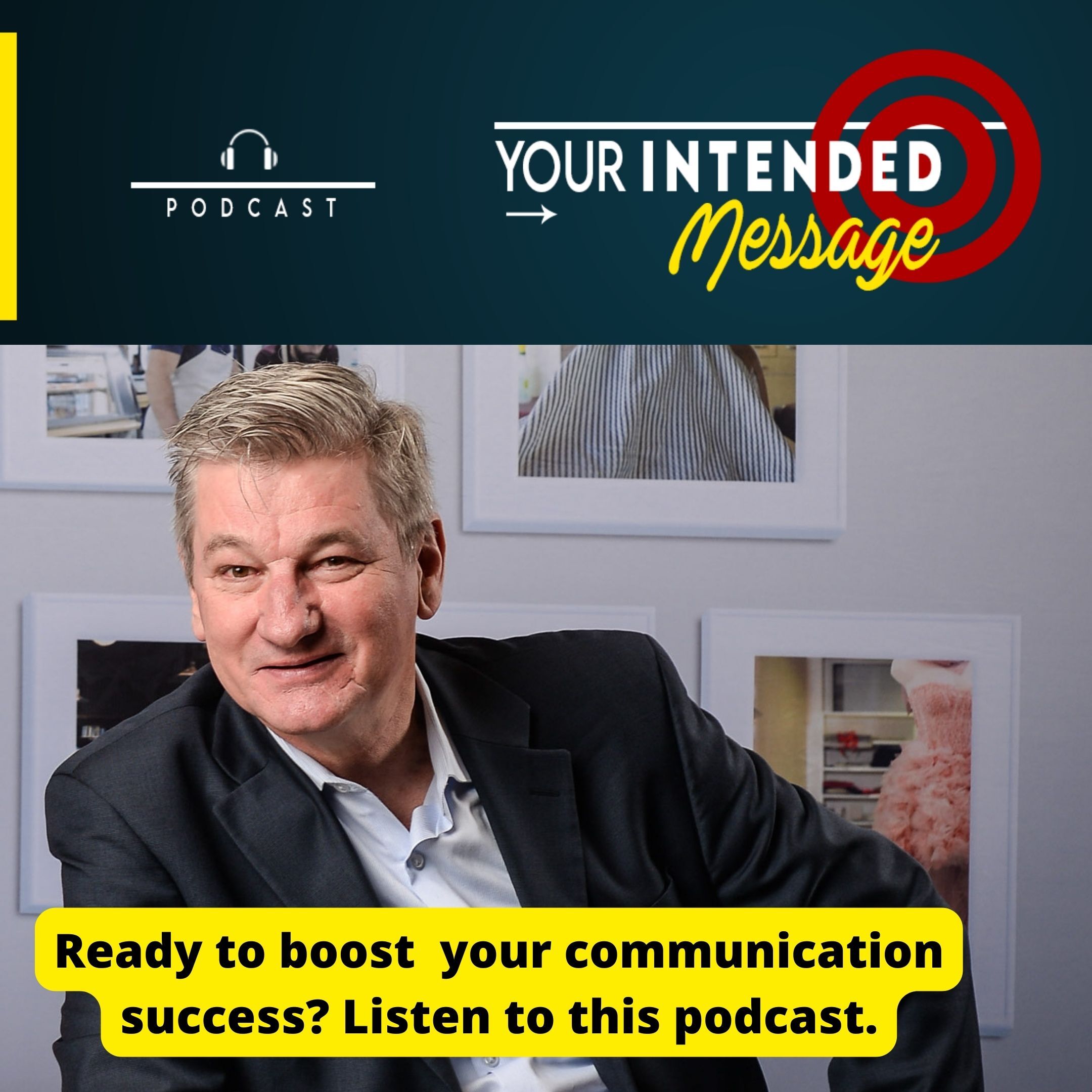
17.2K
Downloads
290
Episodes
The podcast about Effective Communication in Business
Better communication skills will advance your career and business. Are you ready to enhance your understanding and results from better communication? Listen and learn how to deliver Your Intended Message.
Are you willing to cross-examine communication from various perspectives? Would you like to deliver your intended message more effectively?
Listen to Your Intended Message to gain a powerful advantage in your ability to convey your message to your audience, team, clients or marketplace.
Learn from the mistakes and success of communication experts from around the world from different scenarios.
The better communicator has the competitive advantage.
Imagine what that means to you when you improve the success of your next conversation, presentation or message.
Your Host - George Torok
Episodes

Thursday Aug 28, 2025
Tackle Wicked Challenges with Human Ingenuity: Ken Tencer
Thursday Aug 28, 2025
Thursday Aug 28, 2025
Build Innovation Teams That Thrive in Ambiguity
Human Ingenuity: Clever, Inventive and Fearless Thinking
Episode 271 (Ken is based in the Greater Toronto Area)
In this conversation we explore…
-
why innovation often stalls in organizations
-
the difference between innovation, entrepreneurship, and ingenuity
-
how to measure and manage openness to ambiguity
-
why diversity of thought and background is essential for innovation
-
how leadership roles should rotate during the innovation cycle
-
why bias is the greatest barrier to new thinking
-
the role of students and external control groups in innovation
-
the difference between simple, complex, and wicked challenges
-
why human ingenuity requires clever, inventive, and fearless thinking
-
how the 90% Rule honors the past while pushing toward the future
-----
About our guest, Ken Tencer:
Ken is a long time entrepreneur, author and global speaker.
He is completing a doctorate in human ingenuity - clever, inventive an fearless thinking in the faces of wicked challenges (incomplete information, ambiguity, and uncertainty)
Ken works with organizations to help them identify and resolve their wicked challenges, (strategy, team development and tactics). Learn more and contact him at: https://sayhitothefuture.ca/
-----
Key Learning Points
-
Innovation requires three dimensions: innovation (process), entrepreneurship (team), and ingenuity (thinking).
-
Ambiguity is a core skill: successful innovation teams must measure and embrace tolerance for ambiguity.
-
Diversity fuels innovation: variety in backgrounds, perspectives, and disciplines prevents groupthink.
-
Leadership should rotate: the right leader shifts depending on the stage of the innovation cycle.
-
Bias is the biggest barrier: more than money or time, it blocks new thinking.
-
External voices help: student or alumni “control groups” bring fresh, unbiased perspectives.
-
Understand the three challenge types: simple, complex, and wicked — each requires different approaches.
-
Human ingenuity demands fearlessness: decisions must be made even without certainty.
-
The 90% Rule: honor the past while pushing forward to the next 10%.
-
Future readiness means “saying hi to the future”: embracing macro trends, empathy, and new thinking tools.
-----
Read the rest of this entry »
Thursday Aug 21, 2025
High-Stakes Communication - Crisis or Launch: Angela Betancourt
Thursday Aug 21, 2025
Thursday Aug 21, 2025
High-Stakes Communication: Lessons for Leaders
From Crisis to Product Launch: Mastering High-Stakes Messaging
Episode 270 (Angela is based in Massachusetts)
In this conversation we explore…
-
why every business needs a crisis communication plan
-
how to identify vulnerabilities and prepare for unexpected risks
-
why proactive preparation is a positive mindset
-
how to communicate with honesty, transparency, and values
-
why “no comment” often damages credibility
-
how high-stakes opportunities like product launches mirror crises
-
the importance of aligning launches with brand and values
-
authentic ways to show gratitude to your “stunt team”
-
how stories help explain, justify, and inspire in high-stakes situations
-
why customer service and communication plans drive launch success
-----
About our guest: Angela Betancourt:
Angela is a strategic communications expert with over 20 years of experience across five continents helping business, nonprofits, political leaders and startups clarify and amplify their messages - especially when the stakes are high.
As founder of Betancourt Group she works with purpose-driven organizations that are tackling today's urgent issues.
Learn more about Angela and her services at:
-----
Key Learning Points
-
prepare a crisis communication plan before you need it
-
understand your organization’s unique risks and vulnerabilities
-
proactive preparation is positive thinking, not negative
-
avoid “no comment” and lean into honesty and transparency
-
high-stakes opportunities require the same planning as crises
-
align product launches with your brand and values
-
celebrate wins and show authentic gratitude to your “stunt team”
-
storytelling makes complex or high-stakes messages relatable
-
origin stories and narratives reinforce purpose and intention
-
communication plans must include both strategy and customer service
-----
Read the rest of this entry »
Thursday Aug 14, 2025
Sales Success Starts with Mindset: Ashely Beck Cuellar
Thursday Aug 14, 2025
Thursday Aug 14, 2025
Cold Calling in 2025: Strategies That Still Work
Combining Emotional Intelligence with Artificial Intelligence
Episode 269 (Ashely is based in Indianapolis, Indiana)
In this conversation we explore:
-
how AI can serve as a no-cost, personalized sales coach
-
why combining emotional intelligence with artificial intelligence strengthens selling skills
-
the importance of reviewing your own sales calls to identify scarcity language and missed questions
-
how to match your outreach method to the customer’s preferred communication style
-
why cold calling still works when it’s targeted and respectful
-
the fastest way to build trust in the first 30 seconds of a call
-
how to sustain energy and focus during repetitive outreach
-
the strengths introverts and extroverts each bring to sales
-
ways to confidently discuss money by knowing your value
-
why mindset, abundance, and intent matter more than scripts or tools
-----
About our guest, Ashely Beck Cuellar:
Ashely worked for 17 years selling to car dealers. She believes that natural curiosity is one of the greatest strengths any seller can have.
Learn more about Ashley and the sales workshops at
https://salessparkcoaching.com/
The next 6-month sales coaching programs launches in Oct 2025.
-----
Key Learning Points
-
AI can be a personal sales coach
-
Analyze your conversations for missed opportunities
-
Match your communication channel to the client’s preference
-
Cold calling is still effective when done thoughtfully
-
Build trust quickly with honesty
-
Energy and resilience are critical in high-volume outreach
-
Introverts and extroverts bring different strengths to sales
-
Confidently discuss pricing by knowing your value
-
Clients often need guidance to make the best decision
-
Mindset shapes sales performance more than tools
-----
Read the rest of this entry »
Friday Aug 08, 2025
Resourcefulness, Resilience & Collaboration: Mitch Weisburgh
Friday Aug 08, 2025
Friday Aug 08, 2025
Stop Your Brain from Sabotaging Your Happiness and Success
Mind Shifting for Leaders: Building Teams That Solve Complex Problems
Episode 268 (Mitch is based in New York State)
In This Conversation We Explore…
-
how cultural values shape communication and decision-making
-
the hidden “lies” that societies accept and how they influence relationships
-
why the survival brain reacts faster than the resourceful brain
-
what “Part X” is and how it sabotages growth
-
the difference between simple, complicated, and complex problems
-
how to build resilience by experimenting instead of seeking one perfect answer
-
why collaboration depends on flexibility in conflict resolution
-
the four strategies to move from survival mode to resourceful mode
-
the five powers of the resourceful mind and how to use them
-
Mitch’s mission to teach 5 million people resourcefulness, resilience, and collaboration
-----
About our Guest, Mitchell Weisburgh:
Mitchell is creator of the Mind Shifting Method, a practical brain-based system built from neuroscience, cognitive psychology, and leadership strategy. He helps entrepreneurs, executives, and coaches rewire their internal operating systems — so they can lead, decide, and scale without burning out.
Learn more about Mind Shifting and how Mitch can help you and your team at:
https://www.mindshiftingwithmitch.com/
https://mindshiftingwithmitch.blog/
-----
Key Learning Points
-
Cultural norms shape communication—including acceptable “lies” people tell.
-
The brain’s survival mode reacts instantly and often overrides resourceful thinking.
-
Part X—the inner critic—tries to keep us “safe” by discouraging change.
-
Resourcefulness comes from tapping into the creative, empathetic, and executive functions of the brain.
-
Resilience is about navigating uncertainty, not finding one “right” answer.
-
Collaboration requires understanding conflict styles and using flexibility, not force.
-
Recognizing when you’re in survival mode is the first step to shifting your mindset.
-
Positive self-talk works best when it’s curious and open-ended, not cheerleader-style.
-
Distraction and trusted allies can help you reset from emotional overload.
-
The five powers of the resourceful mind—empathy, exploration, innovation, navigate, and focused action—help guide better decisions.
-----
Read the rest of this entry »
Thursday Jul 24, 2025
Craft Stories that Sell: Danny Brassel
Thursday Jul 24, 2025
Thursday Jul 24, 2025
Secret to Memorable Presentations
Be Funny without Offending: Self-Deprecating Humor
Episode 267 (Danny is based in Denver, Colorado)
In this conversation with Danny Brassel we explore:
-
how to instantly connect with your audience using relatability, authority, and purpose
-
why storytelling beats bullet points for memorability and emotional connection
-
how to mine everyday experiences for meaningful stories that support your message
-
why self-deprecating humor is the safest and most effective form of humor in today’s culture
-
how sharing personal failures builds stronger trust and audience rapport than bragging
-
how business leaders can use storytelling to boost team morale and alignment
-
why sad stories must have a hopeful ending to avoid emotional manipulation
-
how to balance facts and feelings to reach both logical and emotional audience members
-
the importance of a single clear call to action at the end of your presentation
-
how to structure your talk using the 5C framework: Clarity, Connect, Content, Call to Action, and Close
-----
About our guest, Danny Brassel:
A speaker, trainer and coach known as “Jim Carrey with a Ph.D.,” Dr. Danny Brassell (www.DannyBrassell.com) has spoken to over 3,500 audiences worldwide.
He has authored 18 books, including Leadership Begins with Motivation and Misfits and Crackpots. The co-founder of The WellCrafted Story Workshop™, Danny helps entrepreneurs, individuals and organizations leverage speaking on stages as a client lead-source that converts.
Get your free copy of the Storytelling Blueprint https://wellcraftedstoryworkshop.com/blueprint
-----
💡 Key Learning Points
-
Open strong with R.A.P. – Build connection in the first five minutes by being Relatable, demonstrating Authority, and declaring your Purpose.
-
Stories beat slides. – People remember stories, not bullet points. Use storytelling to make your message stick and drive action.
-
You already have great stories. – Everyday experiences—even small, silly, or embarrassing ones—can become powerful presentation tools when reframed with purpose.
-
Self-deprecating humor is the safest humor. – When you laugh at yourself, you make the audience comfortable, avoid offending anyone, and build trust.
-
Your failures build credibility. – Audiences connect more with your struggles than your successes. Vulnerability creates relatability.
-
Sad stories need hopeful endings. – A story without a resolution leaves the audience emotionally stuck. If you use a heavy story, resolve it with a positive outcome.
-
Be helpful, not just impressive. – Demonstrating usefulness—even with small tips—builds goodwill and long-term trust.
-
One clear call to action is essential. – Don’t overwhelm your audience with options. Give them a single, clear next step.
-
Appeal to both logic and emotion. – Speak to the “Joe Fridays” (fact-driven) and “Julia Roberts” (feeling-driven) in your audience for maximum engagement.
-
Training must be ongoing. – A one-day workshop isn’t enough. Repetition and coaching are necessary to truly master effective communication.
-----
Read the rest of this entry »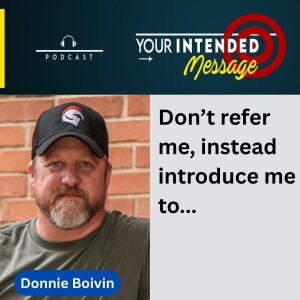
Thursday Jul 17, 2025
Rank Your Network and get on the Starting Lineup: Donnie Boivin
Thursday Jul 17, 2025
Thursday Jul 17, 2025
Fix What's Broken with Traditional Networking
Replace Referrals with Introductions to Build Your Business
Episode 266 (Donnie is based in Texas)
In this conversation with Donnie Boivin we explore:
-
why the traditional rules of networking fail in the B2B space
-
how to eliminate the pitch and still make meaningful connections
-
how to use LinkedIn QR codes instead of business cards
-
what it means to rank your network and why it matters
-
how to earn a trusted spot on someone’s “starting lineup”
-
the power of introductions vs. referrals
-
how to use targeted questions to unlock valuable connections
-
what types of professionals are best suited as referral partners
-
how to use a simple five-word intro to start real conversations
-
the mindset shift from “get a client” to “be a connector”
-----
About our guest, Donnie Boivin:
Donnie started his company at age 40 and was selected for the 40 under 40 list.
He is founder of Success Champion Networking, an online community for serious networkers. https://successchampionnetworking.com/
He is producer of the Bad Ass Business Summit
https://badassbusinesssummit.com/
-----
Key Lessons from this conversation:
-
Traditional networking is broken: Most networking advice is based on transactional sales models that don’t apply to modern B2B relationships.
-
Ditch the business cards and 30-second pitch: These old-school tools no longer serve professionals focused on building real business relationships.
-
Use technology to connect smartly: Tools like LinkedIn QR codes help maintain control of your contacts and avoid spam.
-
Your goal isn’t clients—it’s introductions: Real success comes from building relationships with synergistic partners who already sell to your ideal clients.
-
Rank your network strategically: Donnie’s 4-tier system helps you identify who’s worth nurturing and who’s just noise.
-
Earn your spot on the ‘starting lineup’: Become the go-to person for strategic partners by opening doors for them first.
-
Ask better questions at events: Questions like “How did you get into what you do?” lead to meaningful conversations.
-
Be specific when describing your ideal partner: Help others help you by clearly identifying who you want to meet and why.
-
Make introductions, not referrals: Introductions are easier, lower-pressure, and can generate more opportunities in the long run.
-
Network for synergy, not sales: The most powerful connections come from mutual support between professionals with shared clientele but no competition.
-----
Read the rest of this entry »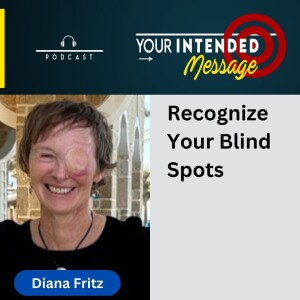
Friday Jul 11, 2025
Recognize Your Communication Blind Spots: Diana Fritz
Friday Jul 11, 2025
Friday Jul 11, 2025
Stop Hiding Your Flaws—Use Them to Lead
One-Eyed Wisdom: Using Your Flaws to Connect with Others
Episode 265 (Diana is based in Florida)
In this conversation with Diana Fritz we explore:
-
how Diana uses her literal blind spot to teach about communication blind spots
-
why vulnerability builds stronger connections in leadership and teams
-
how DISC profiles reveal communication styles and hidden friction
-
strategies to adjust your communication style by reading body language and tone
-
how reflection and journaling help leaders reframe adversity and recharge
-
the difference between being people-focused vs task-focused in communication
-
how Diana’s cancer journey helped her discover her purpose, not her limit
-
ways to help team members feel seen, heard, and supported—beyond the task
-
how to coach others to discover their own blind spots through guided questions
-
why it’s better to be refined by challenges than defined by them
-----
About our guest, Diana Fritz:
Diana is author of "Uniquely Imperfect, Uniquely Qualified" which can can find on Amazon and where fine books are sold.
Diana lost her left eye to cancer and leverages her difference to emphasize how to reveal and use our flaws to connect with others and lead authentically.
Key Lessons from this conversation:
-
transparency builds trust and invites others to open up
-
everyone has communication blind spots—some are visible, others hidden
-
leaders grow when they admit their weaknesses and build systems to support them
-
DISC profiles help teams understand personality-driven behavior differences
-
vulnerability and authenticity are tools for influence, not weaknesses
-
reading body language and listening are key to adapting communication
-
daily reflection helps leaders grow from challenges, not just survive them
-
communication is not one-size-fits-all—it must be customized to the listener
-
your physical or emotional scars can become powerful conversation starters
-
reframing adversity can turn pain into purpose and fuel growth
-----
Read the rest of this entry »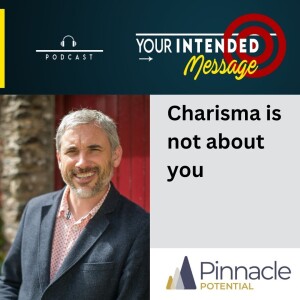
Thursday Jul 03, 2025
Charisma, The Science of Influence & Connection: Richard Reid
Thursday Jul 03, 2025
Thursday Jul 03, 2025
How to Create Psychological Safety in Your Team
From Ego to Empathy: Reframing Executive Presence
Episode 264 (Richard is based in South Africa)
In this conversation with Richard Reid we explore:
-
the true meaning of charisma and why it’s more about how others feel than how you appear
-
the role of psychological safety in building trust, influence, and innovation
-
why self-awareness is the foundation of authentic leadership
-
how emotional leakage can sabotage your message and your team culture
-
strategies to reset your internal state between meetings for greater presence
-
how leaders can communicate calm during crises through deliberate body language and speech
-
the power of micro-habits to improve energy, confidence, and communication
-
how reflection and journaling enhance resilience and leadership effectiveness
-
practical routines to prevent burnout and show up as your best self
-
how leaders can foster a growth mindset and create space for others to shine
-----
About our guest, Richard Reid:
Richard is the author of "Charisma Unlocked: The Science and Strategy to Captivate, Influence and Succeed in Business".
He was Chief People Officer at a global law firm. He is from the UK and now lives in South Africa.
Learn more about his Masterclasses and coaching at
https://richard-reid.com/live-events/charisma-workshops/
-----
Key lessons from this conversation:
-
Charisma is about how others feel, not how impressive you appear.
-
Psychological safety is central to charisma and effective leadership.
-
Charisma starts with self-awareness and managing your internal world.
-
Reflective routines enhance emotional regulation and presence.
-
Effective communication means seeing others as individuals, not objects.
-
In a crisis, calm leadership is conveyed through body language and vocal control.
-
Leaders need to be intentional with their energy and meeting schedules.
-
Small micro-habits, like breathing or posture resets, have a big impact.
-
True charisma is sustainable and rooted in authenticity, not performance.
-
Teams thrive when members feel safe to express themselves and fail forward.
-----
Read the rest of this entry »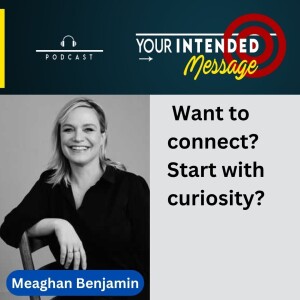
Thursday Jun 26, 2025
Agile Communication Creates Competitive Edge: Meaghan Benjamin
Thursday Jun 26, 2025
Thursday Jun 26, 2025
Help Your Audience Listen Better
Why Curiosity Is the Key to Connection and Leadership
Episode 263 (Meaghan is based in Chicago)
In this conversation with Meaghan Benjamin we explore:
-
The difference between credibility and rapport — and why both matter in leadership.
-
How communication habits are formed and the importance of adapting them.
-
What it means to practice agile communication in today’s digital world.
-
How curiosity fosters connection, learning, and innovation.
-
Why tone, gestures, and delivery shape how others receive your message.
-
How to use the Know–Feel–Do framework to craft more persuasive messages.
-
Ways to build fast rapport in emotionally or professionally high-stakes settings.
- The four levels of listening and how to move conversations to a deeper level.
-
How to help your audience become better listeners by how you speak.
-
The challenge and opportunity of virtual communication for modern professionals.
-----
About our guest, Meaghan Kane Benjamin:
-
Credibility vs Rapport
-
Rapport creates emotional connection; credibility is built by consistent follow-through.
-
-
Communication as Habit + Adaptability
-
Effective communication adapts to the context and people involved.
-
-
Agile Communication Framework
-
A methodology based on science, systems thinking, and storytelling.
-
-
The Power of Curiosity
-
Authentic curiosity drives rapport, empathy, and innovation.
-
-
Tone Is More Than Words
-
Tone, gestures, and expression shape how your message is received.
-
-
The Know-Feel-Do Framework
-
Define what you want the audience to know, feel, and do. Let the "feel" and "do" guide your messaging.
-
-
Build Rapport Fast in High-Stakes Moments
-
Especially in healthcare and business pitches, rapport often matters more than content volume.
-
-
Listening as a Shared Responsibility
-
It's not just about being a better speaker — help others become better listeners too.
-
-
Four Levels of Listening
-
From small talk (Level 1) to generative collaboration (Level 4).
-
-
Virtual Communication Challenges
-
With screens reducing non-verbal cues, intentional delivery matters more than ever.
-
-----
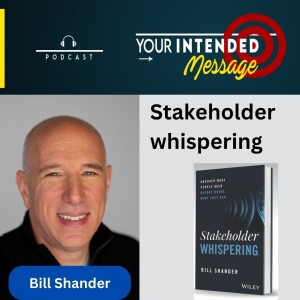
Thursday Jun 19, 2025
Visual Thinking to Communicate with Clarity: Bill Shander
Thursday Jun 19, 2025
Thursday Jun 19, 2025
How to Ask Better Questions Without Saying "Why?"
Stakeholder Whispering: Secret to Better Communication
Episode 262 (Bill is based in New Mexico)
In this conversation with Bill Shander we explore:
-
How to uncover what your stakeholders really need—beyond what they ask for
-
Why your first idea is often just an automated response
-
How to apply the Socratic method to guide people toward their own insight
-
Why asking “why” directly can feel hostile, and what to say instead
-
The power of “chunky segmentation” to clarify vague communication
-
How to balance divergent and convergent questions to get to the truth
-
What aporia means—and why a little confusion leads to breakthrough thinking
-
Why your visuals must reflect meaning, not just style
-
When and how AI can support visual storytelling and insight
-
Why it’s crucial to practice stakeholder whispering on yourself first
-----
About our guest, Bill Shander:
Bill has been teaching data storytelling and visualization for about 10 years for clients around the world and on on Linkedin Learning.
He is the author of "Stakeholder Whispering: Uncover What People Need Before Doing What they Ask"
You can find his book here: Stakeholder Whispering
-----
Key lessons from this conversation:
1. Most stakeholders don’t know what they really need.
-
Insight: Stakeholder requests are often surface-level assumptions, not true needs. Your job is to dig deeper.
2. Your first idea is usually just an automated response.
-
Insight: Pause before acting. The first idea might be convenient, but often lacks strategic depth.
3. Use Socratic questioning to help people uncover their own truth.
-
Insight: Ask layered questions to lead stakeholders into self-awareness rather than handing them answers.
4. Avoid hostile “why” questions—ask with curiosity instead.
-
Insight: Reframe your language: say “Tell me more about…” instead of “Why did you do that?”
5. Translate ambiguous requests using “chunky segmentation.”
-
Insight: Break vague statements (e.g., “We do masterclasses”) into discrete elements to clarify meaning.
6. Push stakeholders into a state of puzzlement (aporia).
-
Insight: Confusion can be a productive step toward clarity—help stakeholders get there.
7. Visuals are communication tools—not just decoration.
-
Insight: Choose visuals based on the real message, not just what’s easy to draw.
8. AI is a helpful partner, but only if you know your message.
-
Insight: Tools like AI are only effective after you’ve clarified your intent and message.
9. Leaders should hire people who push back.
-
Insight: Order-takers may be efficient, but real innovation comes from collaborators who challenge assumptions.
10. Practice stakeholder whispering on yourself first.
-
Insight: Self-questioning sharpens your ability to lead others through discovery and insight.
-----
Read the rest of this entry »